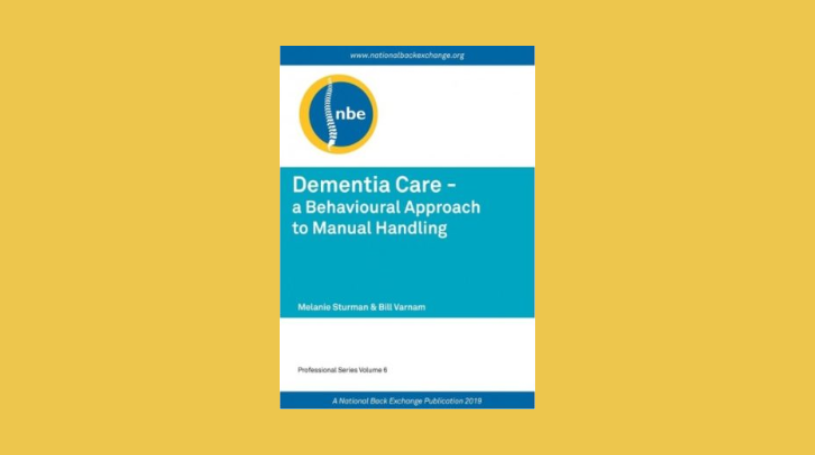Dementia Care
Dementia is an umbrella term for a progressive neurological disorder that affects how the brain functions. There are over 200 different types of dementia, with Alzheimer's disease being the most common, accounting for almost two-thirds of all dementia cases[1].
Prevalence and cost
Globally 50 million people have dementia, with nearly 10 million new cases every year[2]. The expected prevalence for people aged 60+ is 5 – 8%, while the amount of people living with dementia is anticipated to reach 82 million in 2030 and 152 million by 20501 [3].
People living with dementia want to remain independent, but as the condition progresses full-time care may be needed, with subsequent admission to a care facility[4].
In the UK, over 900,000 people aged over 65 years are living with dementia[5], with an estimated 42,000 people under 65 living with the same condition.
60% of people are receiving home care services[6] [7], 311,720 people living in care homes,[8] and approximately 25% of hospital beds are occupied by people living with dementia, with their length of stay extended and delayed discharge potentially an issue3.
Caring for people with dementia places a substantial burden on society, families, health and social care services[9] with the annual cost to the UK economy estimated at £26.3 billion2. The Prime Minister’s Challenge on Dementia 2020 Implementation Plan[10] recognised the need for early detection, prevention and intervention to support individuals, their families and carers.
Person-centred care
For those living with dementia, delivering person-centred care designed to create an environment of homeliness and familiarity is fundamental to the individual’s quality of life[11] and well-being. Person-centred care is recognised as a best-practice model of care[12], recommended in international policy and practice guidelines.[13] It recognises the individuality of the individual, their personality and how their life experiences influence their responses to their condition. It also emphasises the importance of relationships and interactions with others, as well as their potential for promoting positive behaviours and wellbeing. Promoting mobility for people with dementia has important physiological and psychological benefits.[14] As dementia progresses and the person becomes less mobile and eventually fully dependent on the assistance of others, the need for appropriate and safe solutions including safe patient handling becomes even more important.[15]
To find out more read the Dementia Care – a Behavioural Approach to Manual Handling publication that offers the reader insight into author’s experience, background information and practical guidance for a range of dementia care scenarios that can help to improve the person’s quality of life and dignity, while potentially reducing the risk of injury to the caregiver.
Dementia Care – a Behavioural Approach to Manual Handling
References
[1] https://www.dementiastatistics.org/statistics/different-types-of-dementia/ Accessed April 2022
[2] World Health Organization website https://www.who.int/news-room/fact-sheets/detail/dementia Accessed April 2022
[3] Public Health England: Health matters: midlife approaches to reduce dementia risk, 22 March 2016, https://www.gov.uk/government/publications/health-matters-midlife-approaches-to-reduce-dementia-risk/health-matters-midlife-approaches-to-reduce-dementia-risk Accessed April 2022
[4] Alzheimer's Research UK Dementia Statistics Hub https://www.dementiastatistics.org/statistics/care-services/ Accessed April 2022
[5] House of Commons Library (2022) General debate on dementia research in the UK
https://researchbriefings.files.parliament.uk/documents/CDP-2022-0033/CDP-2022-0033.pdf Accessed April 2022
[6] World Alzheimer Report World Alzheimer’s Report 2015, Alzheimer´s Disease International, https://www.alz.co.uk/research/WorldAlzheimerReport2015.pdf Accessed April 2022
[7] Carter, D (2015) Dementia and Homecare: Driving Quality and Innovation by the UK Homecare Association as cited in https://www.dementiastatistics.org/statistics/care-services/ Accessed April 2022
[8] Prince, M et al (2014) Dementia UK: Update Second Edition report produced by King’s College London and the London School of Economics for the Alzheimer’s Society as cited in https://www.dementiastatistics.org/statistics/care-services/ Accessed April 2022
[9] Nichols E (2019) Global, regional, and national burden of Alzheimer’s disease and other dementias, 1990–2016: a systematic analysis for the Global Burden of Disease Study 2016. Lancet Neurology; 18: 1, 88-106
[10] Prime Minister’s Challenge on Dementia 2020 Implementation Plan (2016) https://assets.publishing.service.gov.uk/government/uploads/system/uploads/attachment_data/file/507981/PM_Dementia-main_acc.pdf Accessed April 2022
[11] Nicholson L (2020) Achieving person-centred dementia care through a bio-psychosocial model. Nursing Times [online]; 117: 1, 50-53.
[12] Bolster & Manias 2010; Kontos & Nagile 2007; McCormack & McCance 2006. https://www.ncbi.nlm.nih.gov/pubmed/19577752 Accessed April 2022
[13] NICE/SCIE 2011, Alzheimer’s Association 2018. https://www.scie.org.uk/publications/misc/dementia/dementia-fullguideline.pdf?res=true Accessed April 2022
[14] Arjo Positive 8 Philosophy - Insights https://www.arjo.com/en-gb/insights/positive-eight/ Accessed April 2022
[15] Alzheimer Society Factsheet 400LP (2017) https://www.alzheimers.org.uk/sites/default/files/2019-09/400%20What%20is%20dementia_0.pdf January 2017. Accessed April 2022

